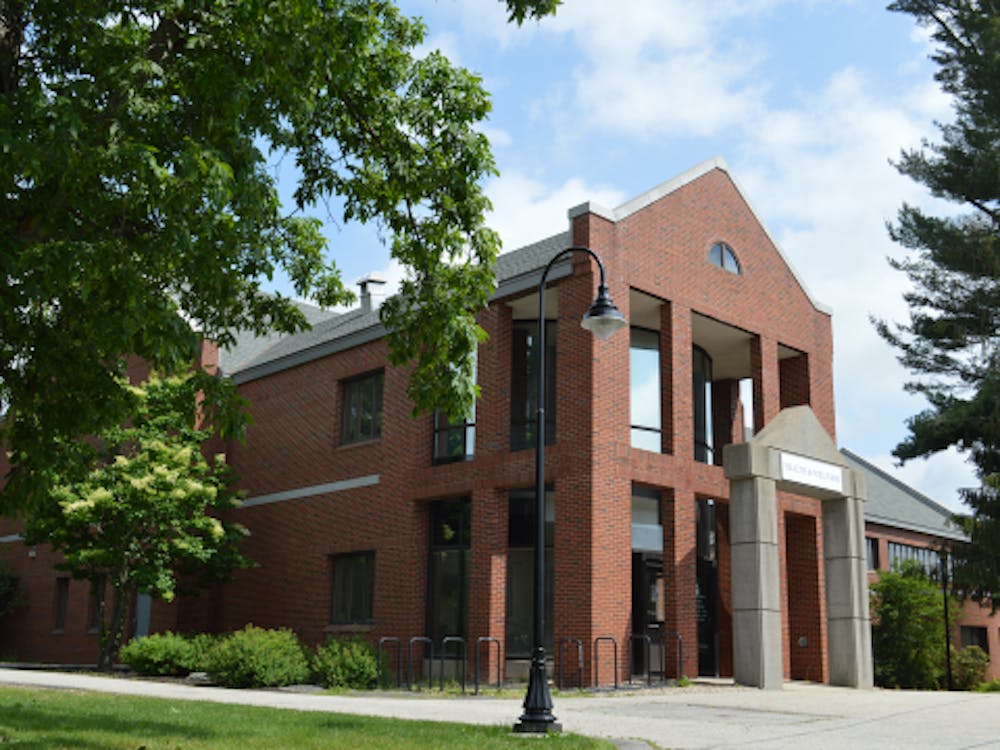DURHAM, NH--Sleep is a wellness sector most college students neglect. Whether they’re out partying, cramming for an exam, writing their thesis paper or just hanging out with friends in the dorms; the sleeping patterns for the typical college student are far from consistent.
The National Sleep Foundation recommends that young adults between the ages of 18 and 25 get at least seven hours of sleep per night. Students at the University of New Hampshire (UNH) and colleges across the world are struggling to meet that minimum.
Mercedes Pepin, a junior occupational therapy major reported in an online survey that she got an estimated five hours of sleep per night. When asked how many nights per week Pepin stayed up later than expected doing homework, Pepin recorded five out of the seven nights of the week.
In the same survey, Pepin was asked on a scale from one to 10 how important they felt sleep was to their overall daily wellbeing. Pepin said, “eight because my awful sleep schedule has definitely impacted my mood, memory, and eating habits. I give it an 8 because I don’t immediately feel the effects of not getting enough sleep but over time it is apparent that my mental and physical health is declining.”
Pepin is not the only UNH student to feel this way.
According to Shannon Seiferth, a health and education counselor at UNH’s Health & Wellness, “Each year, UNH students report sleep to be one of the top health concerns negatively impacting their academic success. From data I was able to access it has been in the top three reports concerns (along with stress and anxiety) the past five times the survey has been distributed. This survey is launched every other year.”
Health & Wellness has been hosting sleep workshops titled, “Be Well, Sleep Well” over the past year.
According to Seiferth, “The Be Well, Sleep Well workshop is designed to give participants the opportunity to assess their current sleep habits and create a personalized sleep action plan. Together we’ll review the importance of sleep for recovery and restoration of the body and brain, learn healthy sleep habits, and discuss a variety of sleep improving interventions.”
Seiferth plans to host “Be Well, Sleep Well” workshops one to two times a month. There will be a variety of in-person and virtual opportunities.
UNH students aren’t the only ones feeling the negative effects of not getting enough sleep. According to American College Health Association (ACHA) national college health assessment from Spring 2021, 23,458 out of 95,995 (24.4%) of participants recorded that they felt “tired or sleepy during the day” seven days of the week. All participants were college students from a variety of different universities.
Megan Wimsatt, a junior environmental science and ecosystems major, said, “When I am not tired, I make the most of my day and feel happier.”
Sleep is not only important for rejuvenating the body and mind, but it is essential in obtaining the energy for students to do well in classes.
Nadia Daaboul, a senior vet tech and animal science major, said, “Sleep impacts my mood and thought process. I find it hard to focus in class with little sleep.”
“I can’t function without sleeping well,” said Alexis Roach, a junior political science and justice studies major.
Health & Wellness will be hosting a Be Well, Sleep Well Expo in conjunction with Wellness Fest, on Thursday, Oct. 28 from 11a.m. – 2p.m. at Hamel Recreation Center. Wellness Fest will offer a variety of booths, resources, and activities on different sectors of wellness. The sleep expo will allow participants to learn how to improve their sleeping habits for both personal and academic success.
Seiferth said, “In years past participants have been able to take part in individual sleep screenings, design their own sleep masks, and walk through a mock dorm room highlighting ways to create a sleep sanctuary – along with many other features. It’s a fun and highly educational event.”
For students unable to attend any Be Well, Sleep Well workshops, additional resources such as personal sleep coaching can be found through the Health & Wellness website.
“We need good quality sleep in order to operate at our very best, to manage our energy, and to show up as our best selves to all the different roles and responsibilities we take on,” said Seiferth.
Photo courtesy of the University of New Hampshire.













